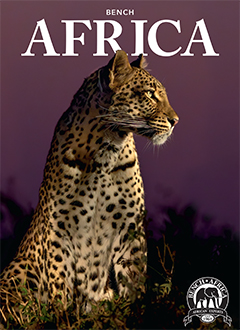Day 1 – Northern Okavango Delta
You will fly from Maun Airport to the Northern Okavango Delta. On landing, you will be met by staff and transfer arriving in time for lunch and then an afternoon activity. (D)
Accommodation: 2 nights North Island Okavango.
There are only 3 spacious tents in camp, each resting on a raised wooden deck under the shady boughs of wild ebony trees. Each tent offers stunning views of the lagoon in front of it and a private plunge pool with a sunken sundeck for cooling off, for you to enjoy while watching the wildlife that comes into view. At night sit on the deck listening to the bell frogs tinkle like wind chimes and watch as fireflies wink at you across the water. For the hotter summer nights, each bed comes with its very own ‘over-the-bed’ cooling system. And in winter, there is a cosy fireplace to relax in front of, making each tent a romantic safari experience.
The camp sits peacefully in front of a glorious hippo-filled lagoon, shaded by a congregation of enormous trees, with a separate lounge and dining area to enjoy delicious dinners, connected by a wooden deck that extends onwards for stargazing around a crackling fire pit at night. To the side, there is a separate library for resting and reading and an outdoor gym to exercise in, while surrounded by the wild. This colourful little camp packs a lot of punch. From the contemporary African inspired design to the activities on offer, this is a small island haven for wild adventure.
Day 2 – Northern Okavango Delta
A full day exploring the area with game viewing activities provided by the camp. (BLD)
Okavango Delta –
The Okavango Delta in Botswana is a vast inland delta formed where the Okavango River reaches a tectonic trough at an altitude of 930 – 1,000 m in the central part of the endorheic basin of the Kalahari.
It is a UNESCO World Heritage Site as one of the few interior delta systems that do not flow into a sea or ocean, with a wetland system that is largely intact. All the water reaching the delta is ultimately evaporated and transpired. Each year, about 11 cubic kilometres (2.6 cu mi) of water spreads over the 6,000–15,000 km2 area. Some flood waters drain into Lake Ngami. The area was once part of Lake Makgadikgadi, an ancient lake that had mostly dried up by the early Holocene.
The delta was named one of the Seven Natural Wonders of Africa, which were officially declared on 11 February 2013 in Arusha, Tanzania. On 22 June 2014, the Okavango Delta became the 1000th site to be officially inscribed on the UNESCO World Heritage List.
The Okavango Delta is both a permanent and seasonal home to a wide variety of wildlife which is now a popular tourist attraction. All of the big five game animals—the lion, leopard, African buffalo, African bush elephant and rhinoceros (both black and white rhinoceros)—are present along with a large variety of African wildlife including giraffe, wildebeest, zebra, hippo, crocodile, cheetah and numerous antelope. The delta also hosts over 400 bird species
Since 2005, the protected area has been considered a Lion Conservation Unit together with Hwange National Park.
Both white and black rhino has been reintroduced by Botswana Rhino Reintroduction Project. In 1992, black rhino was estimated extinct while white rhino was left just 19 individuals.
Day 3 - - End of your North Island Package
This morning after breakfast you will be transferred to the airstrip for your flight back to Maun and your onward arrangements. (B)
 We’re loading your experience...
We’re loading your experience...



















 Luxury Camp
Luxury Camp 





